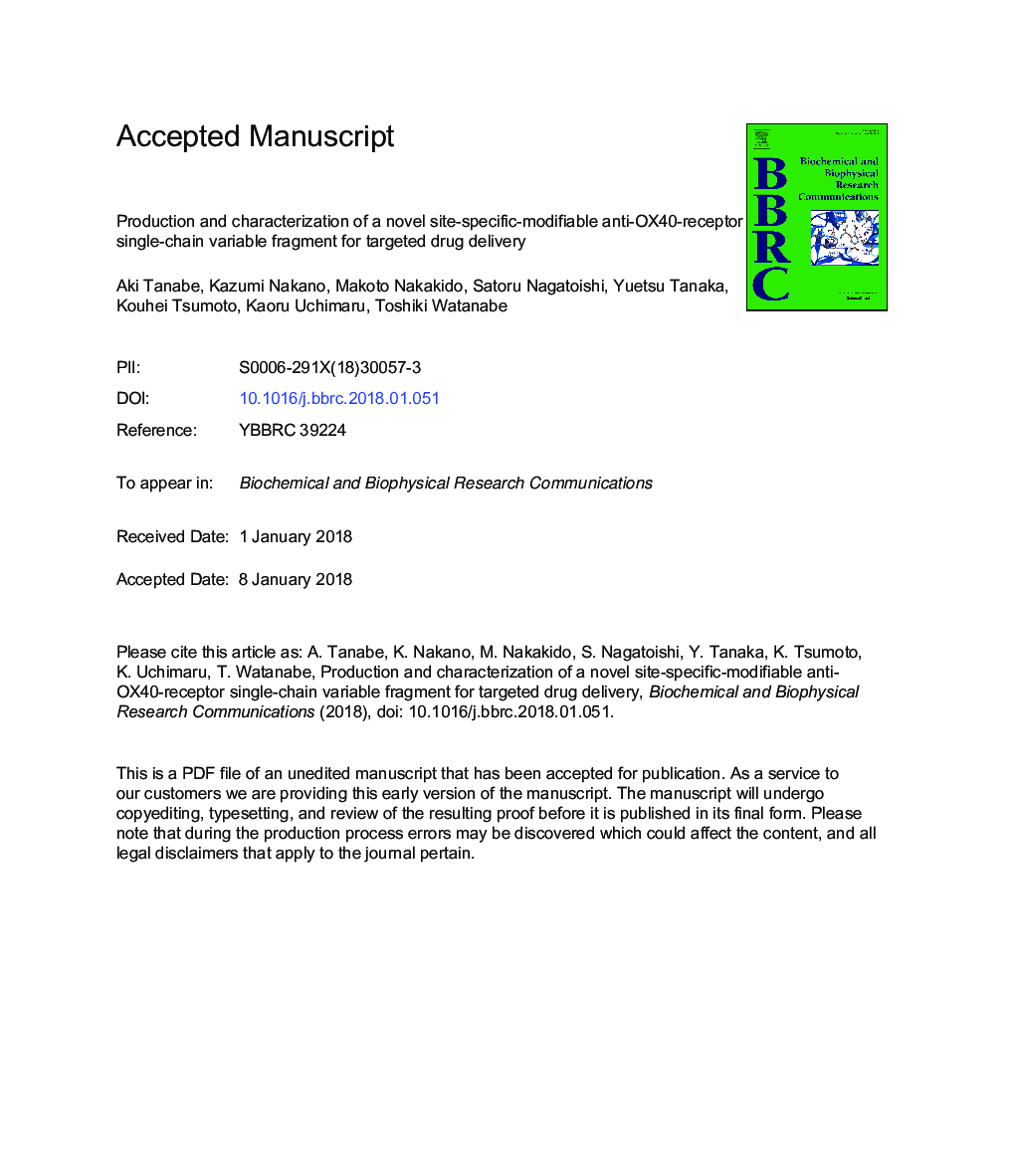| Article ID | Journal | Published Year | Pages | File Type |
|---|---|---|---|---|
| 8294895 | Biochemical and Biophysical Research Communications | 2018 | 30 Pages |
Abstract
OX40 receptor (tumor necrosis factor receptor superfamily, member 4; CD134) is a T-cell co-stimulatory molecule that plays an important role in T-cell activation and survival. OX40 receptor is activated by its ligand, OX40L; and modulation of the OX40-OX40L interaction is a promising target for the treatment of autoimmune diseases and cancers. Here, we generated a high-affinity anti-OX40 single-chain variable fragment carrying a C-terminal cysteine residue (scFvC). Physicochemical and functional analyses revealed that the scFvC bound to OX40-expressing cells and was internalized via OX40-mediated endocytosis without inducing phosphorylation of IκBα (nuclear factor of kappa light polypeptide gene enhancer in B-cells inhibitor, alpha), an important complex in the classical NFκB (nuclear factor kappa-light-chain-enhancer of activated B cells) signaling pathway. In addition, mutation of the 36th cysteine residue in variable region of light chain enabled site-specific chemical modification to carboxy terminal cysteine and improved the thermal stability of the scFvC. These results suggest that this novel high-affinity anti-OX40 scFvC may be useful as a transporter for targeted delivery of small compounds, proteins, peptides, liposomes, and nanoparticles, into OX40-expressing cells for the treatment of autoimmune diseases and cancers.
Keywords
PI3KSurface plasmon resonance analysisTNFαIgGOX40LscFvOX40DSCIκBNFκBPhosphatidylinositol-4,5-bisphosphate 3-kinaseSDS-PAGESodium dodecyl sulfate polyacrylamide gel electrophoresisDrug deliverySPRtumor necrosis factor αInternalizationCircular dichrosimnuclear factor kappa-light-chain-enhancer of activated B cellsnuclear factor of kappa light polypeptide gene enhancer in B-cells inhibitor, alphasingle-chain variable fragmentDifferential scanning calorimetryAntibody drug conjugate
Related Topics
Life Sciences
Biochemistry, Genetics and Molecular Biology
Biochemistry
Authors
Aki Tanabe, Kazumi Nakano, Makoto Nakakido, Satoru Nagatoishi, Yuetsu Tanaka, Kouhei Tsumoto, Kaoru Uchimaru, Toshiki Watanabe,
